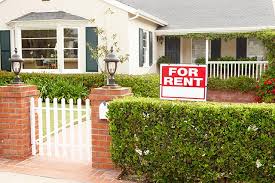Rentals across South Africa have risen to their highest level in eight years, bringing good news for landlords recovering from years of low or negative returns following the COVID-19 pandemic. The latest data from the PayProp Rental Index shows a steady increase in rental prices alongside a notable drop in tenant arrears, signalling a healthier rental market nationwide.
According to the PayProp report, rental growth for the first quarter of 2025 reached 5.6%, slightly higher than the previous quarter’s 5.2%, and the strongest growth since the 5.9% recorded in the third quarter of 2017. This upward trend is not isolated but widespread, covering almost every province. Even Mpumalanga, which had been close to negative growth after two quarters of decline, has bounced back to avoid a downturn.
Only three provinces showed marginally slower rental growth compared to the last quarter of 2024, and in two of those cases, growth remained above the national average. The report credits low inflation for sustaining this growth, with the Consumer Price Index (CPI) dropping from 3.2% in January and February to 2.7% in March. This widening gap between rental growth and inflation — hitting 2.8% in February and March — is the largest seen during the current rental growth cycle.
The positive rental momentum supports the Reserve Bank’s cautious interest rate cuts this year, including a 25 basis points reduction in the repo rate early in 2025, followed by another cut in May. PayProp suggests these rate cuts are likely to improve tenant affordability and stimulate activity in South Africa’s property sales market.
Despite optimism, PayProp warned that ongoing global trade tensions and potential economic slowdown could slow future rental growth. Nevertheless, the residential rental sector remains strong, driven by robust tenant demand, helping landlords recover after difficult pandemic years.
Tenant Payment Behavior Shows Improvement
One of the best signs of rental market health is tenant payment behaviour, which has been encouraging. Unlike the sharp spike in arrears seen in the first quarter of 2024, early 2025 saw no such rise. The proportion of tenants in arrears fell to 17.0%, matching PayProp’s record low. Meanwhile, the average rent owed by tenants in arrears dropped from over a full month’s rent in the third quarter of 2020 to just 77.1% in the first quarter of 2025.
Regional variations exist. The Western Cape leads with the strongest tenant payment behaviour in the country: only 13.7% of tenants were in arrears in Q1 2025, slightly up from the previous quarter but still the lowest nationally. Tenants in arrears here owed an average of just 60.2% of rent, also the lowest in South Africa.
KwaZulu-Natal saw arrears hold steady at 19.4%, ranking as the third-highest nationally, but this is the lowest level the province has experienced in over five years. Limpopo experienced strong rental growth and moderate arrears, with only 17.1% of tenants behind on rent.
The Eastern Cape presents a more mixed scenario. Tenant arrears climbed to 19.3%, though still lower than a year ago, with the average rent owed by those behind rising to 71.6%. This signals growing financial pressure on tenants in that region.
Gauteng saw arrears improve notably, dropping to 20.8% from 24.2% the previous quarter, though tenants behind on rent owed more on average — 96.5%, the highest nationwide.
Northern Cape performed well, with just 15.6% of tenants in arrears, the second-lowest in South Africa. The Free State showed volatility in arrears, improving from the second-worst province to one of the best in Q4 2024, before settling at a mid-range 18.6% in Q1 2025.
Tenant Risk Profiles Offer Hope for Landlords
PayProp’s tenant risk assessments also offer encouraging news for landlords. Nearly 40% of applicants in Q1 2025 were classified as minimum risk, showing strong ability to meet rental payments. The remaining were split as 26% high risk, 20% low risk, and 14.5% medium risk. This slight increase in minimum risk tenants from 39.2% in Q1 2024 reinforces the view of a stable and improving rental market.
For landlords and rental agents, this marks the most promising start to a year in nearly a decade, with strong rental growth, better tenant payment behaviour, and supportive economic factors combining to boost confidence in South Africa’s residential rental sector.
